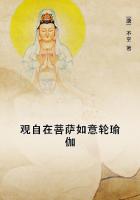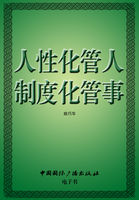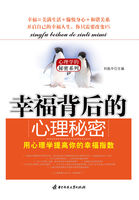The great misfortune of the modern English is not at all that they are more boastful than other people (they are not);it is that they are boastful about those particular things which nobody can boast of without losing them. A Frenchman can be proud of being bold and logical, and still remain bold and logical.
A German can be proud of being reflective and orderly, and still remain reflective and orderly. But an Englishman cannot be proud of being simple and direct, and still remain simple and direct.
In the matter of these strange virtues, to know them is to kill them.
A man may be conscious of being heroic or conscious of being divine, but he cannot (in spite of all the Anglo-Saxon poets) be conscious of being unconscious.
Now, I do not think that it can be honestly denied that some portion of this impossibility attaches to a class very different in their own opinion, at least, to the school of Anglo-Saxonism. I mean that school of the simple life, commonly associated with Tolstoy.
If a perpetual talk about one's own robustness leads to being less robust, it is even more true that a perpetual talking about one's own simplicity leads to being less simple.
One great complaint, I think, must stand against the modern upholders of the simple life--the simple life in all its varied forms, from vegetarianism to the honourable consistency of the Doukhobors.
This complaint against them stands, that they would make us simple in the unimportant things, but complex in the important things.
They would make us simple in the things that do not matter--that is, in diet, in costume, in etiquette, in economic system.
But they would make us complex in the things that do matter--in philosophy, in loyalty, in spiritual acceptance, and spiritual rejection.
It does not so very much matter whether a man eats a grilled tomato or a plain tomato; it does very much matter whether he eats a plain tomato with a grilled mind. The only kind of simplicity worth preserving is the simplicity of the heart, the simplicity which accepts and enjoys.
There may be a reasonable doubt as to what system preserves this;there can surely be no doubt that a system of simplicity destroys it.
There is more simplicity in the man who eats caviar on impulse than in the man who eats grape-nuts on principle.
The chief error of these people is to be found in the very phrase to which they are most attached--"plain living and high thinking."These people do not stand in need of, will not be improved by, plain living and high thinking. They stand in need of the contrary.
They would be improved by high living and plain thinking.
A little high living (I say, having a full sense of responsibility, a little high living) would teach them the force and meaning of the human festivities, of the banquet that has gone on from the beginning of the world. It would teach them the historic fact that the artificial is, if anything, older than the natural.
It would teach them that the loving-cup is as old as any hunger.
It would teach them that ritualism is older than any religion.
And a little plain thinking would teach them how harsh and fanciful are the mass of their own ethics, how very civilized and very complicated must be the brain of the Tolstoyan who really believes it to be evil to love one's country and wicked to strike a blow.
A man approaches, wearing sandals and simple raiment, a raw tomato held firmly in his right hand, and says, "The affections of family and country alike are hindrances to the fuller development of human love;" but the plain thinker will only answer him, with a wonder not untinged with admiration, "What a great deal of trouble you must have taken in order to feel like that."High living will reject the tomato. Plain thinking will equally decisively reject the idea of the invariable sinfulness of war.
High living will convince us that nothing is more materialistic than to despise a pleasure as purely material. And plain thinking will convince us that nothing is more materialistic than to reserve our horror chiefly for material wounds.
The only simplicity that matters is the simplicity of the heart.















